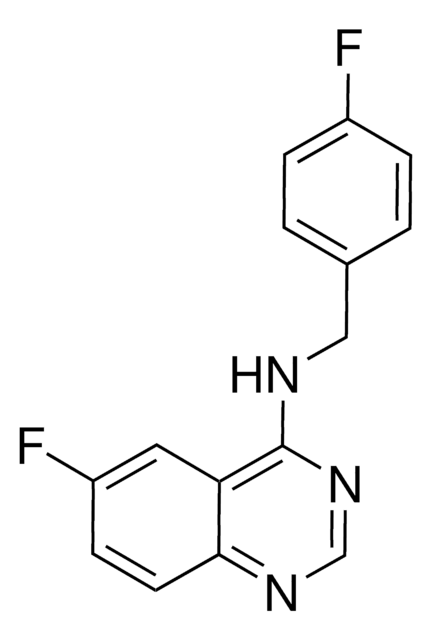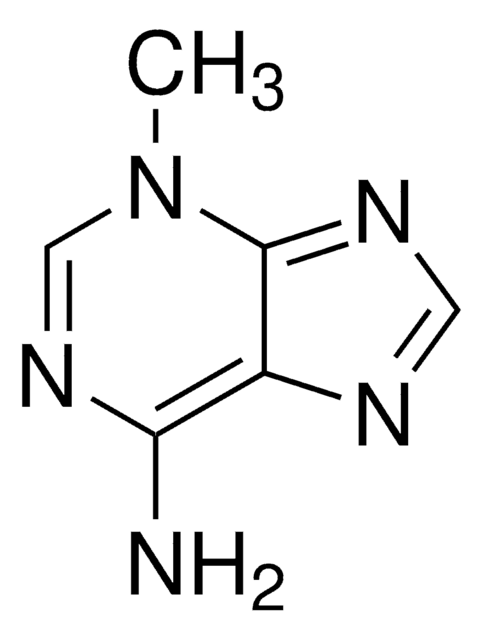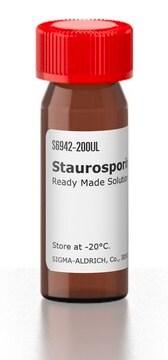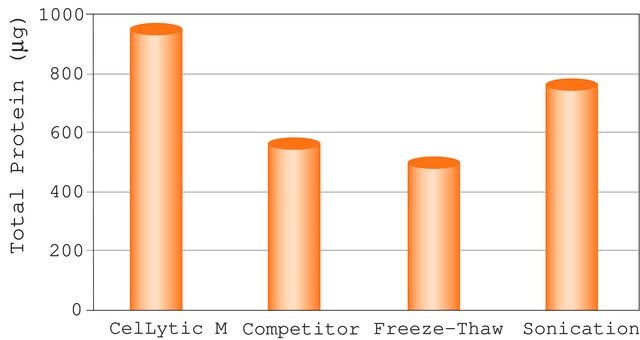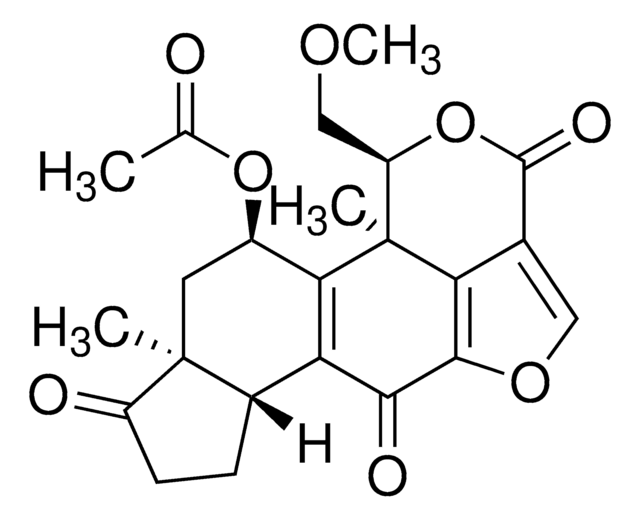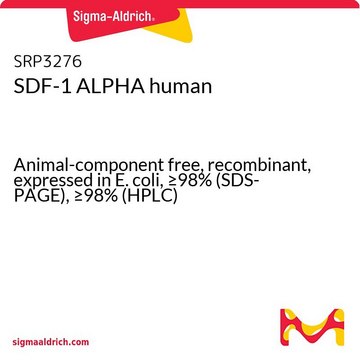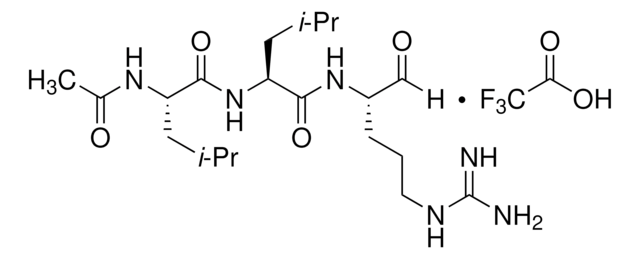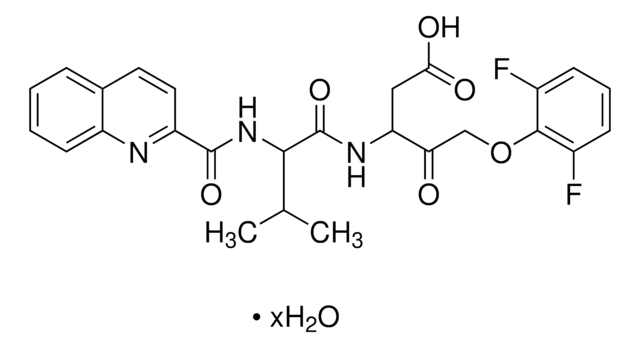SML0440
Spautin-1
≥98% (HPLC)
Synonyme(s) :
6-Fluoro-N-[(4-fluorophenyl)methyl]-4-quinazolinamine, C43
About This Item
Produits recommandés
Niveau de qualité
Pureté
≥98% (HPLC)
Forme
powder
Couleur
white to beige
Solubilité
DMSO: 15 mg/mL (clear solution)
Température de stockage
2-8°C
Chaîne SMILES
FC1=CC=C(C=C1)CNC2=C3C=C(F)C=CC3=NC=N2
InChI
1S/C15H11F2N3/c16-11-3-1-10(2-4-11)8-18-15-13-7-12(17)5-6-14(13)19-9-20-15/h1-7,9H,8H2,(H,18,19,20)
Clé InChI
AWIVHRPYFSSVOG-UHFFFAOYSA-N
Application
- to study its effects on vascular, glial, and neuronal alterations in the oxygen-induced retinopathy mouse model
- to evaluate its pre-treatment effect on the response of canine osteosarcoma cells to doxorubicin
- to study its effects on the production of interleukin (IL)-6 by oxidatively stressed dendritic cells (OS-DCs) in Luminex assay
Actions biochimiques/physiologiques
Mention d'avertissement
Danger
Mentions de danger
Conseils de prudence
Classification des risques
Acute Tox. 4 Oral - Eye Dam. 1
Code de la classe de stockage
11 - Combustible Solids
Classe de danger pour l'eau (WGK)
WGK 3
Point d'éclair (°F)
Not applicable
Point d'éclair (°C)
Not applicable
Certificats d'analyse (COA)
Recherchez un Certificats d'analyse (COA) en saisissant le numéro de lot du produit. Les numéros de lot figurent sur l'étiquette du produit après les mots "Lot" ou "Batch".
Déjà en possession de ce produit ?
Retrouvez la documentation relative aux produits que vous avez récemment achetés dans la Bibliothèque de documents.
Les clients ont également consulté
Notre équipe de scientifiques dispose d'une expérience dans tous les secteurs de la recherche, notamment en sciences de la vie, science des matériaux, synthèse chimique, chromatographie, analyse et dans de nombreux autres domaines..
Contacter notre Service technique
